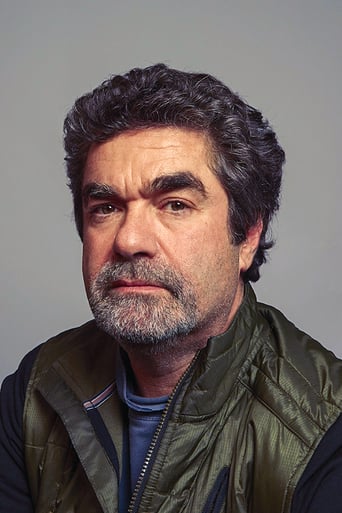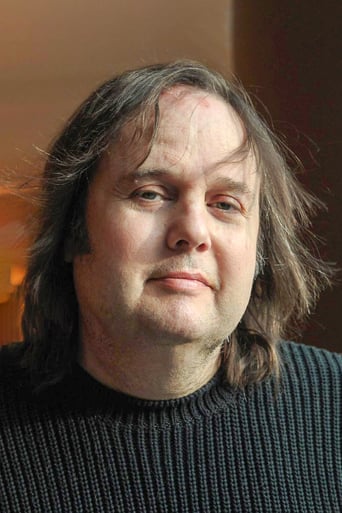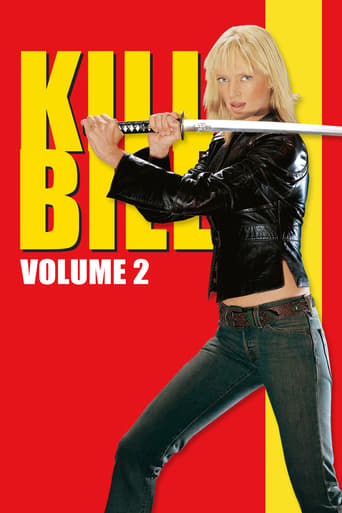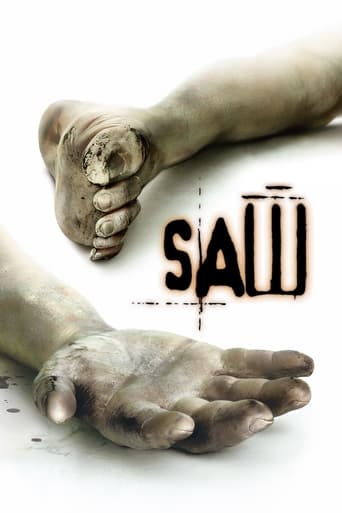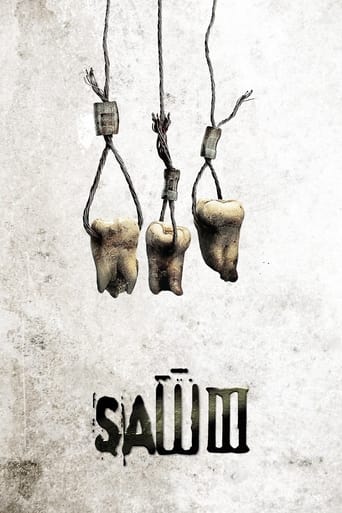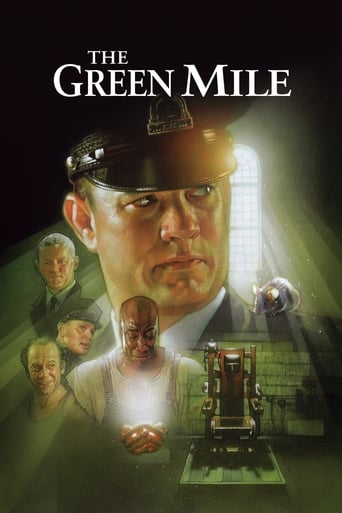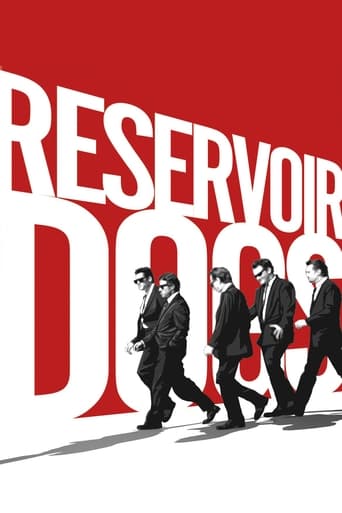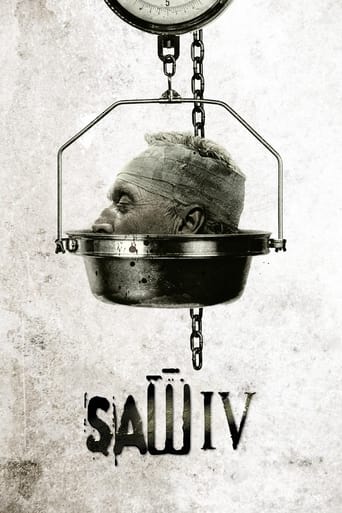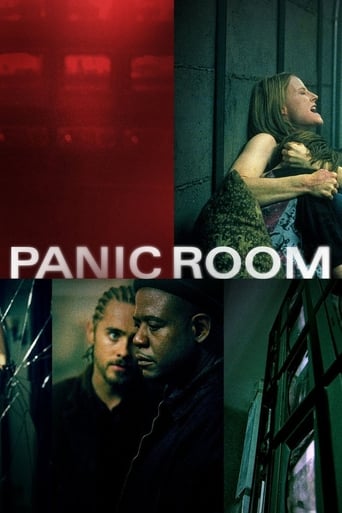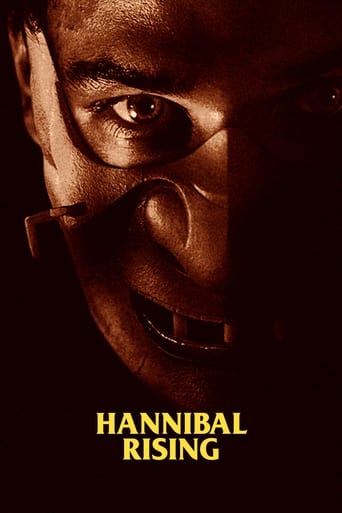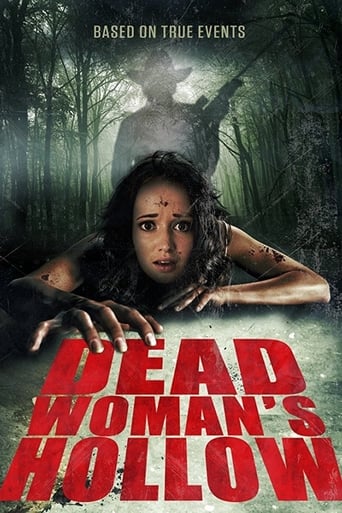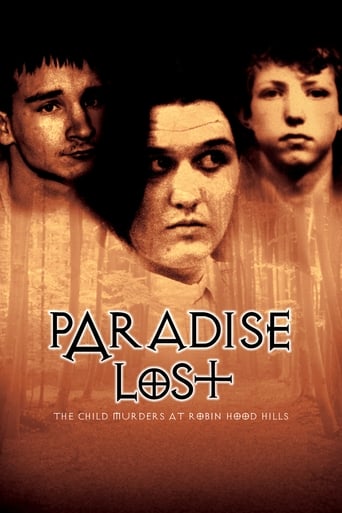
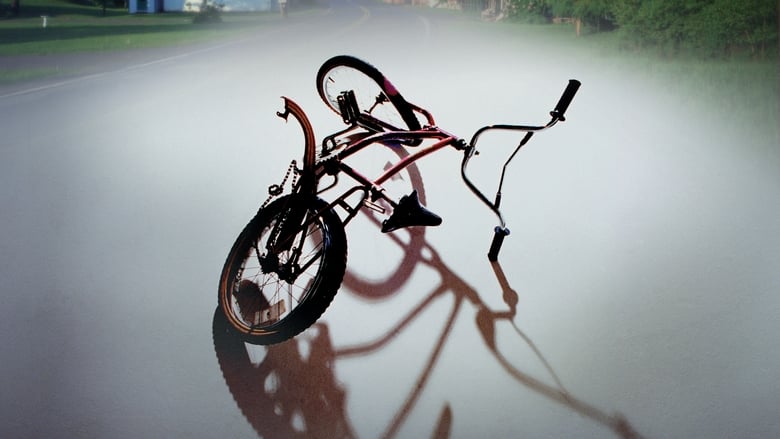
Paradise Lost: The Child Murders at Robin Hood Hills (1996)
A horrific triple child murder leads to an indictment and trial of three nonconformist boys based on questionable evidence.
Watch Trailer
Cast


Similar titles
Reviews
Joe Berlinger and Bruce Sinofsky direct "Paradise Lost 1 and 2". Both films revolve around a gruesome case in which three young boys were sexually mutilated and murdered in West Memphis, Arkansas. The incident occurred in the mid 1990s. Three teenagers, subsequently known as the West Memphis Three, were arrested for the crime. They were cleared of charges in late 2011.Much of both films focus on the travails of the three accused boys: Jessie Misskelley, Damien Echols and Jason Baldwin. All three were loners; ostracised young men from lower income families. Jessie is portrayed as being mentally handicapped or slow. His confession and admittance of murder is explicitly portrayed as being the result of police coercion. Damien, meanwhile, is painted as a victim of police scapegoating and community witch-hunts. Locals – politically conservative and strongly Evangelical – believe him to be the member of a satanic cult. Our film-makers argue that Damien is simply a moody teenager who just happened to be fond of dark literature, heavy metal and a little edgy nonconformity, all of which, we are told, are unfairly stigmatized.The second film focuses on a West Memphis Three support group which believes the three accused teens to be innocent victims, falsely charged. It also focuses on John Mark Byers, the stepfather of one of the victims. Byers, the film argues, may actually have been the trio's killer.Entertaining (in a sleazy, somewhat sensational way), both documentaries are nevertheless relentlessly manipulative. This case cries out for a more dispassionate tone, instead we're coerced from the on-set. Damien's past detention at mental health hospitals/clinics are ignored, his past confessions and writings on wishing to commit slayings are ignored, flunked polygraphs are omitted, the past violence of all three kids are ignored, various details found at the crime scene are ignored, the second film knowingly overplays the significance of "bite marks", Byers' dead wife and false teeth and fails to investigate the personalities behind the West Memphis Three support group, which may itself be a cult-like institution, enamoured by the photogenic, goth-like charm of Damien, who, while he may be entirely innocent, also demonstrates traits of psychopathy and manipulativeness. The point is, the film is exactly what it pretends to warn against: it's selective, biased, has a one-dimensional agenda and deliberately withholds information. So what's the truth? Nobody knows. The fact is, everyone involved in this case (from the victims, to the suspects, to the police, to the courts, to the suspect's friends and relatives) has dark histories and/or behaved suspiciously during the event. With such muddied waters, it's almost impossible to determine exactly what really went on. The "Paradise" films bulldoze away all these far scarier nuances.Regardless, the film's central point is worthwhile: the State of Arkansas has never convincingly demonstrated the trio's guilt beyond a reasonable doubt. And yet according to 24 jurors, they did. Confused? The three suspects were eventually released with the odd court enforced proviso that they essentially admit that they might actually be guilty, even if freedom of speech laws grant them the arena to trumpet the opposite. Bizarre. It's a double helix in which both sides (the courts and the suspects) simultaneously mutually admit their guilt AND win their freedom from accusations. In other words, the trio are essentially saying "we killed them, but we're free so we're innocent" while the courts, equally paradoxically, are saying "we railroaded them, but they're free now, even though we have enough evidence to commit them." This isn't justice, this is almost a form of psychosis.The first film is the more engrossing of the two. The second is filled with filler material, passages designed to pad its meagre running time. The second nevertheless captures well the toll the passage of time takes on our three "victims", and contains an interesting subplot which focuses on a local lawyer who is convinced that the West Memphis Three were wrongly accused. Berlinger and Sinofsky released a third film, "Paradise Lost 3", in 2011. A study by Ronald Huff, director of the Criminal Justice Research Centre, and professor of sociology Arye Rattner, estimates that in the United States alone, over 10,000 people are wrongfully convicted of serious crimes each year.8.5/10 – Worth one viewing. Similar fare: "In The Name of the Father", "The Wrong Man", "The Hurricane", "Conviction", "A Cry In The Dark", the excellent "Murder on a Sunday Morning", "The Thin Blue Line" and "Capturing the Friedmans".
Paradise Lost: The Child Murders at Robin Hood Hills (1996) **** (out of 4) Heartbreaking, shocking and at times disturbing documentary about three teens (Damien Echols, Jason Baldwin and Jessie Misskelley, Jr.) put on trial for the murder of three 8-year-old boys in West Memphis, Arkansas. The documentary, running 150-minutes, digs into the pre-trial hype surrounding the case and goes all through the trial up to the conviction of the teens. PARADISE LOST: THE CHILD MURDERS AT ROBIN HOOD HILLS is a film that got a lot of attention when it was first released but I missed out on it. In fact, I really hadn't paid too much attention to the case, although I had certainly heard about it. Going into watching this I was unaware of any of the evidence or lack thereof and I also wasn't certain about anything in the story. I'm not going to sit here and say the boys did or didn't commit the crimes but you really do have to wonder about the motives for them being found guilty. I do think the word evidence is very loosely used here and for the life of me I can't help but think things like heavy metal music and black clothes got them convicted. People are so terrified of those who dress in black yet I'm sure this redneck town had heard of Johnny Cash and I don't think they'd look at his clothes and see Satan worshipper. What impressed me most about the documentary is how open they are to all of the families involved. This includes the family of the three kids who were murdered as well as the families of the three teens convicted. The filmmakers did the right thing by not placing one over the other. While it's clear that they do paint that there's a lot of strange things going on throughout the trial, not once do they take away from the victim's families and this here is very important. The entire backwoods world is probably going to strike many as weird. The families say some pretty strange things. They act or say things that some might object to but I think what's so fascinating is that we're really seeing these people as they try to get on with their lives after losing their kids. Some of the victim's parents talk about killing the teens themselves and we even hear one guy talking about what he wants to do to them. Some might be turned off by this but I think it's an honest reaction to having your kid stolen from you and you wanting revenge. Even some of the teen's families come across saying bad things but it's good they're in the movie because it's an honest reaction to hearing your loved ones have been found guilty of something you don't think they did.Directors Joe Berlinger and Bruce Sinofsky have taken a truly grisly triple murder and turned it into some of the greatest drama you're going to witness. The events of the murders are just so chilling that you want to see justice done but at the same time the evidence on which the three were convicted is so questionable that you can't help but think that more crimes have been committed. Again, I don't know the truth. Perhaps the three teens did have something to do with it but there just wasn't any evidence. Perhaps they're innocent and have been found guilty because of the way they look. Either way, PARADISE LOST shows the pain of families who have had their children taken away from them in one way or another and the human drama here is something painful to watch but at the same time fascinating. The movie certainly gives one a lot to think about and discuss.
I always believed that a case needed only reasonable doubt to find people innocent. Apparently I was very wrong. I am in no way claiming my support for the three found guilty, but I for one could never convict them based on this evidence. The film shows just how unstable people can be when faced with those that don't conform. I was amazed by how much I disliked the parents of the murdered boys. They ramble and scream about killing these three, already convinced of their guilt. They seem more unstable and threatening to me, and not just because their children have been murdered. No real physical evidence is brought up against the boys, whom should probably start training professional killers on how not to leave evidence at a murder site. I know for a fact that a lot of details were left out of this documentary, and the celebrity worship that has followed the accused since is a bit too much. However this film is terrifying. It shows that just because of the way you look, and what people say about you, can take away your entire life. Make sure to check out all the evidence for yourself.
Distortion. Manipulation. Fear. Those are some of the things that convicted three boys of a brutal triple homicide. It's infuriating because THERE WAS NO EVIDENCE LINKING THEM TO THE CRIME! Three young boys are brutally murdered and sexually mutilated. Three teenagers are arrested and convicted of the crime. This isn't "Law and Order." This is about how distortion of the truth and insinuating facts can distort it. I was left wondering how they could convict three young men of such crimes with NO CREDIBLE WITNESSES! Especially when another man was clearly implicated in it.Disturbing? Yes. Infuriating? Absolutely. Perfect? Not quite..."Paradise Lost: The Child Murders at Robin Hood Hills" is a two and a half hour long documentary, and while the filmmakers never waste a moment, it has a tendency to drag. Still, it's a must see.What's especially interesting about this film is that the directors are so even-handed about their subject. They tell the story from both sides of the issue. Yet it's kind of uneven when it comes to the people involved, though no doubt this is their intent to prove their point. There's no information about Jason Baldwin, even at the trial, no one mentions him. But what is there to say? He's "guilty by association." John Mark Byers is the only parent who's given any light, but his involvement is more suspicious than any of the accused (iMDb says his wife died a year later, and the cause is UNDETERMINED!).It's "The Crucible" in real-life.


